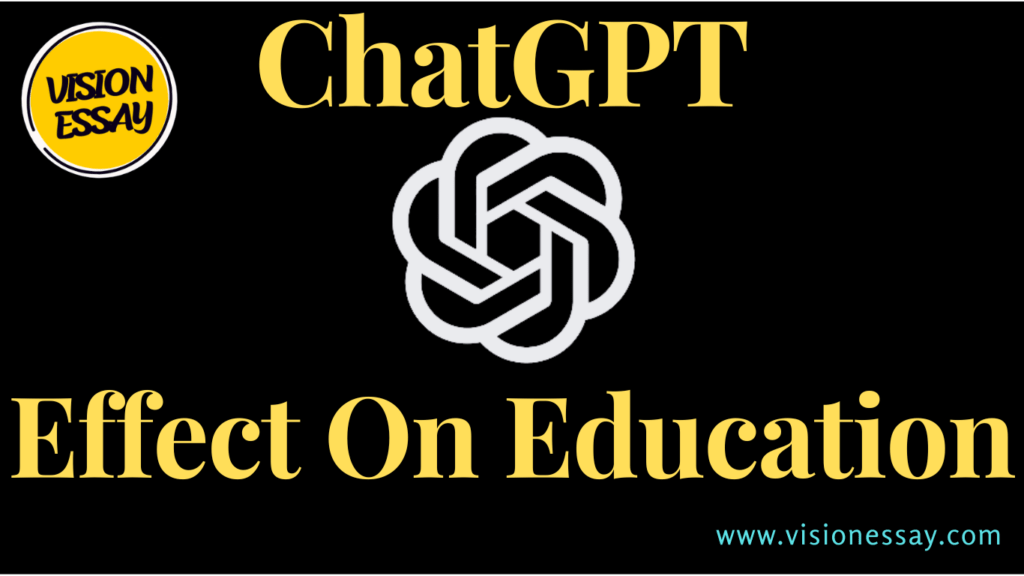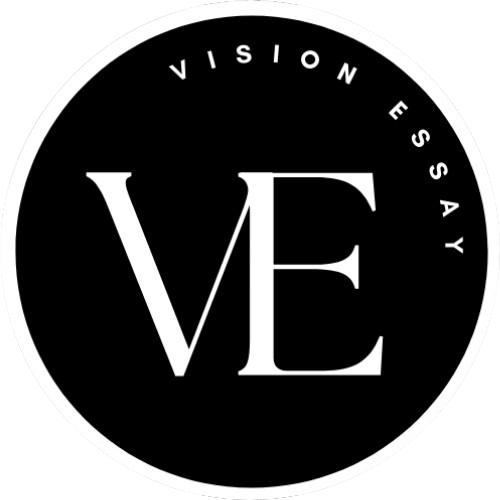
Introduction
ChatGPT is an Artificial intelligence (AI) based tool, which provides information. ChatGPT has the ability to be an effective educational tool. It can offer individualized educational experiences, increase accessibility, offer linguistic assistance, offer review and assessment, and provide extra materials to better the educational process. This tool plays a very important role in education. This tool is helpful to solve queries and problems.
Positive Impact of ChatGPT on Education
ChatGPT has many benefits for use in education.
1. Improved information access
- Students can gain access to vast amounts of information on a variety of topics with ChatGPT. This may be especially useful for students who have trouble finding information on their own or who lack access to traditional educational resources.
- ChatGPT has facilitated simpler access to information in education by promptly and accurately replying to students’ inquiries. Thanks to its vast knowledge base, ChatGPT can respond right away to a variety of educational queries.
- ChatGPT can help students find things to explore in their schoolwork and research by recommending pertinent resources and giving information on a range of topics. By providing information gradually, ChatGPT can help students save time and improve their productivity.
2. Personalized learning
- ChatGPT can be set up to cater to the particular requirements and learning preferences of every student, resulting in a more personalized educational experience. This might improve student learning results and boost their interest and motivation.
- By making a syllabus to the unique requirements and aptitudes of each student, ChatGPT can aid in personalizing the educational experience. ChatGPT may modify the content’s level of difficulty and give tailored feedback based on a student’s prior performance, allowing them to advance at their own speed.
- ChatGPT may analyze a student’s learning style and interests and provide tailored suggestions for more reading material, such as articles, videos, or activities.
3. Improved critical thinking capabilities
- Using ChatGPT, those can also involve students in exciting dialogues, teachers can urge their students to pose inquiries and take into account alternative viewpoints. This can help them develop more critical thinking skills and a deeper understanding of the subject matter.
- ChatGPT can support cooperative learning by enabling students to collaborate on projects, discuss ideas, and provide feedback to one another. Through this, students can exchange knowledge with one another and develop their interpersonal and cooperative abilities.
- ChatGPT can help students improve their ability to solve problems and make decisions by giving them feedback and guidance. It can be used by students to analyze choices, suggest different solutions, and weigh the benefits and drawbacks of various possibilities.
4. Improved Language Skill
- Through the utilization of ChatGPT, which delivers feedback on the structure of sentences, grammar, and vocabulary, students can enhance their writing abilities. The largest benefit from this will be seen by non-native English speakers and students who have trouble writing.
- Based on the unique needs of each student, ChatGPT can offer specialized learning possibilities. This may be especially helpful to learners who have trouble in particular academic areas or who have learning challenges.
- ChatGPT can encourage cross-cultural dialogue by simulating conversations between individuals from around the world. This might help students develop a deeper regard for and knowledge of various cultures.
5. Greater Efficiency
- Unlike real teachers, ChatGPT is always available, allowing students to learn whenever they wish. Giving students the freedom to learn at their own speed and according to their own schedule can increase learning effectiveness.
- ChatGPT can provide customized learning opportunities by adapting to the preferences, learning styles, and speeds of each student. When the content and the method of delivery are adjusted to each student’s needs, learning is more efficient for everybody.
- With ChatGPT, routine tasks like assigning grades, making quizzes, and answering frequently asked questions may be automated. Because of this automation, teachers will have more time to focus on building stronger relationships with their students.
Also read: What is ChatGPT and How to Use it in 2023?
Negative Impact of ChatGPT on Education
ChatGPT can be a useful tool in education, but it also has its limitations and potential negative impacts.
1. Dependence on Technology
- One of the potential negatives of using ChatGPT in educational institutions is the potential addiction to technology that may result. Learners may depend on the artificial intelligence (AI) system to provide them with solutions rather than becoming unable to solve problems on their own. This may lead to a lack of critical thinking and problem-solving skills, each of which is essential for achievement in the real world.
- If students depend too much on technology for knowledge and help, they risk losing their capacity to think logically and solve problems. Additionally, they could struggle to think independently and creatively.
- When students spend a lot of time using technology, they could get used to the continual stimulus and find it hard to concentrate on traditional teaching techniques like lectures or reading.
2. Misinformation
- It’s possible that ChatGPT’s information isn’t always reliable or correct. It could provide false or incorrect data, which could be detrimental to learning. incorrect information may also be propagated as a result of the student’s incapacity to distinguish between true and incorrect information.
- One potential source of disinformation from ChatGPT is the possibility that it may not always be unable to understand the background to a question or provide important information.
- The spread of false information using ChatGPT in the educational setting may impair students’ capacity to understand and learn. If ChatGPT gives students false or incorrect knowledge, they may internalize it and be less able to engage with the content in a meaningful way.
3. Lack of Personal Interaction
- The usage of ChatGPT in school may prevent teachers and students from speaking to each other directly. Students could feel alone and struggle to develop the social skills necessary for achievement in real life.
- One disadvantage of implementing ChatGPT in the classroom could be the lack of personal interaction between students and teachers.
- Students may miss out on opportunities to have meaningful conversations with their professors and peers when they concentrate only on technology to provide the answers to their inquiries.
4. Limitation in Learning
- ChatGPT may produce biased findings as a result of potentially biased training data. This prejudice could impede students’ understanding of a particular subject or reinforce inaccurate assumptions.
- Even though ChatGPT can create complex phrases and respond to a range of prompts, it might not be able to comprehend subtleties or contexts that are essential to language development. The ability of children to use the language in authentic contexts may be impacted by this restriction.
- The kind of individualized feedback that an instructor can give might not be something that ChatGPT can do. It might not be capable to accommodate each student’s particular learning needs or offer the same level of psychological help that a professor can.
5. Ethical Concerns
- The application of AI in education is likewise fraught with ethical issues. For instance, there can be worries over the security and privacy of user data along with the possibility of bias in ChatGPT’s algorithmic framework.
- Security and privacy issues may arise when using ChatGPT in the classroom. Sensitive information about pupils could be made public if the talks between the AI model and the kids are not adequately secured.
- Emotional intelligence and sympathy, which are crucial components of effective interaction and instruction, are lacking in ChatGPT. Students risk missing out on crucial interpersonal encounters and relationships necessary for personal development if they rely too much on ChatGPT for psychological support or advice.
Conclusion
ChatGPT may be a valuable tool in education, providing a wide range of advantages to students as well as teachers. Students can access educational resources and materials, such as books, articles, and other study aids, through ChatGPT. Additionally, it can assist students with their research by giving them access to pertinent data and sources for their academic work. In general, ChatGPT has the ability to transform the area of education by improving accessibility, engagement, and effectiveness of learning for learners of every background and age. Although ChatGPT is an emerging technology, and its full capacity for teaching has not yet been achieved, it should be underlined.
Frequently Asked Questions (FAQs)
Is ChatGPT helpful for students?
You may utilize ChatGPT to improve your writing abilities, experiment with different writing styles, and even acquire assignment ideas. Students may also benefit from ChatGPT by using it to provide feedback and ideas on their work, which can help them write more clearly and with better grammar.
How does ChatGPT affect higher education?
The analysis’s findings suggest that ChatGPT might boost student engagement, tailor learning opportunities, and improve instructional methods among other aspects of education.
What are the changes in education in 2023?
These abilities will be given more attention in STEM education in 2023, and there will be more effort made to monitor and assess them inside enterprises. Significant educational reforms will be driven by India’s National Education Policy (NEP) in 2023, with an emphasis on STEM-based learning and skill-based education.
What are the benefits and challenges of using ChatGPT for students?
ChatGPT offers a customized learning environment by comprehending the various learning preferences of its users. It may assess students’ academic progress and design the curriculum to match their needs. Through Chat GPT, students may study at their own pace and comprehend difficult ideas completely.
Sources:
